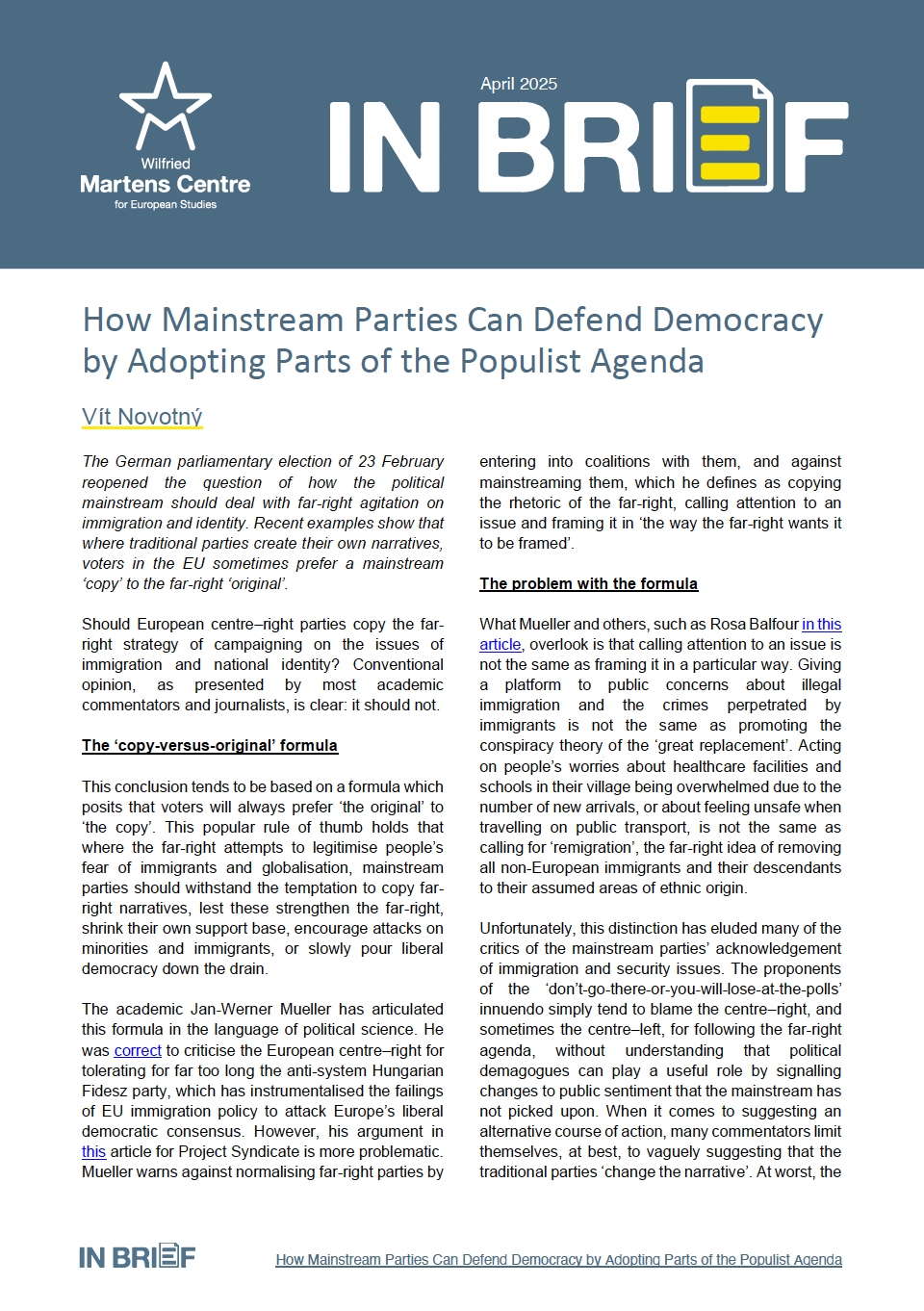Boycotting the Migration Compact: a loss of credibility for the EU
10 December 2018
The Global Compact for Safe, Orderly and Regular (‘Migration Compact’ from now on) is an international agreement that has given rise to passions like no other recent global document. The Compact was signed in the morning of 10 December 2018 in the Moroccan city of Marrakech.
Uproar in Marrakech, quiet in New York
The text of the Migration Compact stems from The New York Declaration for Refugees and Migrants, adopted by the UN in 2016. This declaration was a result of decades of international efforts to bring a sense of order to global migration and refugee movements. One can look at the process started off by the New York Declaration as the first serious attempt for a global migration and refugee governance. The New York Declaration was adopted by 193 members of the UN, with no official record of dissent from any UN member.
The Migration Compact has a non-identical twin brother, the Global Compact on Refugees (Refugee Compact), also a result of the diplomatic process started off by the New York Declaration. According to an informed source, the Refugee Compact has gone through the UN structures with little dissent, with only the US expressing a certain degree of disapproval. Barring a last-minute revolution, the Refugee Compact will be agreed by the UN General Assembly in New York around 17 December 2018, a few days after the signing of the Migration Compact in Marrakech.
The Migration Compact had been negotiated by 190 UN governments. The US withdrew from the negotiations in December 2017, Hungary in July 2018. Between the summer 2018 and the beginning of December 2018, several other countries announced they would not sign the Migration Compact. In Europe, these included Czechia, Austria, Poland, Italy, Bulgaria and Latvia.
On 10 December in Marrakech, most governments in which the European People’s Party participates signed the Migration Compact. The impression is that all the governments with the EPP participation will be signing the Refugee Compact later this month.
The document
The Migration Compact is not legally binding, and the document stresses this multiple times. Nevertheless, according to some interpretations, the document could become customary international law in the same way that the Universal Declaration on Human Rights has become.
But this remains a theoretical proposition. For a document to become a part of customary international law, its practices would have to be ‘universally followed’ and obtain ‘widespread acceptance’. In addition, customary international law contains a concept of a persistent objector. If a state consistently and openly objects to an international norm, the norm is considered as not binding on that state.
The document contains 23 objectives. Protecting human rights of migrants is a core element but so is the sovereignty of states.
The Migration Compact does contain passages that may be problematic from the centre-right viewpoint. This includes the rights of migrants working in the informal economy, as opposed to the desirable insistence on employers declaring their employees and paying their taxes. Furthermore, the tone of inclusivity and the constant emphasis on migrant rights may not be to the liking of everyone on the European centre-right.
However, most policy objectives of the Migration Compact are in line with the European Agenda on Migration as well as the European People’s Party 2018 Congress document on migration, A Secure Europe. This comprises secure borders, minimising the drivers that compel people to leave their country of origin, the identification of migrants, criminalisation of migrant smuggling, prevention of human trafficking and government cooperation on migrant returns.
Political controversy
With the partial boycott of the Migration Compact, we are witnessing a peculiar situation. Most of the governments that are withholding their signature have negotiated the document until the last minute. The Slovak foreign minister, Miroslav Lajčák resigned over his own Socialist-led government’s withdrawal from the Migration Compact. He had been instrumental in developing the document at the UN.
The Belgian government did sign the Migration Pact but one of the coalition partners, the Flemish N-VA, withdrew from the cabinet over the issue.
The fact that the UN Refugee Compact is not suffering the same wave of boycotts as the Migration Compact, gives us an insight into the curious world of politics of immigration in the West. The Refugee Compact might also be perceived as generating obligations on the signatory states, yet all the European UN members seem committed to signing the Refugee Compact later in December.
Whether the governments who refused to put their signature to the Migration Compact have been negotiating in good or bad faith, is not up to me to decide. Likewise, it is not up to me to decide about domestic reasons for the boycott, such as the need to polarise national and European migration debates and to temporarily improve the standing of the governments in question vis-à-vis parts of their electorate.
Attack on multilateralism and the weakening of the EU position
The bigger picture is clear. The several governments’ boycott of the Migration Compact amounts to, once again, an attack on multilateralism. The Migration Compacts lays the foundations for global cooperation on migration. It offers multiple avenues for building trust between governments, thus ultimately leading to better migration policy outcomes for the EU and its members.
Those European governments that refused to sign the Migration Compact will not be entitled to complain that third country governments do not cooperate when it comes to the registration of migrants, cooperation on border control and readmission of own nationals.
The international position of the EU is weakened accordingly. The EU is currently striving to externalise migration controls by cooperating with third countries. It is difficult to see why a European country that wants to externalise migration controls would deliberately jeopardise its position vis-à-vis potential partners.
ENJOYING THIS CONTENT?


















